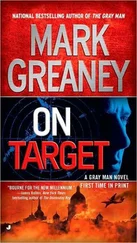Ryan was more than pleased by the failure, but he knew the diplomatic fallout from Japan would be near equal to the nuclear yield of the device if it had been armed.
Scott Adler was thinking the same thing. “I’m sure Tokyo isn’t too thrilled about the wreckage coming so close to their mainland.”
Jay Canfield replied, “I’ll bet they are pissed. As far as I’m concerned, though, that’s better than it plowing into Seattle or San Fran.”
Ryan continued to address Ward. “Any idea what went wrong?”
“MASINT, that’s measurement and signature intelligence, detected an abnormal flare after second-stage burnout but before separation. We will be running tests for some time, but it looks like it was something we call a ‘staging failure.’ It is not uncommon, especially for the DPRK. The last time they launched an Unha-3 they lost it at first-stage separation, so this time they got a little further.”
“What was the duration of the flare?” Ryan asked.
The colonel was obviously surprised by the question. He looked down to his sheet, then quickly began shuffling papers in front of him. The major sitting at her iPad scurried a bit as well, before finding what she was looking for. She pushed a page to Colonel Ward.
“Sorry for the delay, Mr. President. The flare lasted approximately two seconds.”
Ryan made a face. “That sounds a little short to be a staging failure, doesn’t it? Normally with stage fail there will be a partial flameout before the explosion. This, to me, sounds like an instantaneous detonation. Maybe the ground control center saw the rocket wasn’t going to make it into orbit for some other reason so they aborted. Just pushed a button and blew the ICBM up in flight. Does the Unha-3 have a flight termination system?”
Colonel Ward looked at some more papers. “Uh . . . we actually do not know the answer to that, Mr. President. Their mid-range ballistic missiles do not have flight termination systems, but this ICBM is much larger, so we think they might.”
“They might ?” Ryan asked. This wasn’t the kind of intelligence briefing he liked getting. And from the look on Ward’s face, this wasn’t the type of intelligence briefing the colonel liked giving.
“I’m sorry, sir. We don’t have any hard intelligence that answers the question, one way or the other.”
“The Russians have flight term systems on their mid-range and larger ICBMs, and so do the Chinese. Right?”
“That is correct, Mr. President.”
“Well . . . the North Koreans are basing their systems off of Russian and Chinese technology, so it should follow they have a similar setup.”
Ward did not reply.
“Yes or no, Colonel Ward?”
“Well . . . yes. But . . .”
“But what ?”
“But the North Koreans have taken significant shortcuts with other aspects of the systems they copy. It’s possible they did not put any flight termination systems on their Unha-3. We just cannot make a determination with the raw intel we have on the matter.”
Ryan was dissatisfied, but he changed gears. “Okay. For some reason the missile failed. Let’s talk about what happens next time, when it succeeds. Where are we on determining the efficiency of their nuclear weapons?”
Ward thought he was on firmer ground here. “They have a stockpile of around fifty kilos of weapons-grade plutonium, most of which is disbursed in the existing weapons. They also have uranium enrichment facilities. They have one overt facility at Yongbyon, but we are virtually certain that is just a cover location to show their interest in uranium is for peaceful purposes. They have other clandestine facilities, but the location and efficiency of these are uncertain.” He frowned. “Another function of our poor intelligence out of the country.”
Director of National Intelligence Mary Pat Foley chimed in. “The most recent nuclear test performed in North Korea, we think, used uranium and not plutonium, and if this is, in fact, the case, it shows us they are expanding their capabilities.
“They’ve had three successful underground tests. They’ve got a plutonium bomb, that is not in doubt. We estimate they have between five and ten devices. The yield is in question, but suffice it to say they are big enough to pose a threat.”
When Foley finished, Ward picked back up. “As I said before, DIA speculates the DPRK has reached the sophistication for miniaturization of their nuclear weapons to the degree they could, in theory, place a small plutonium-based warhead on one of their Rodong missiles, with a range of one thousand kilometers. If this is, in fact, the case, it isn’t too far-fetched to think they could weaponize a longer, intermediate-range rocket.” Ward hastened to add, “We do think the targeting of the missile would be inaccurate and the efficiency of the warhead to be low.”
Ryan asked, “How low? What is the estimated accuracy of the Taepo-2?”
“Undetermined. There is a twenty-five percent probability of—”
Ryan interrupted. “Are we talking accurate to within a few miles, tens of miles, hundreds of miles? Just a general idea.”
Ward looked back down to his page.
Ryan sighed. “Colonel. You are being too careful. We’re just two guys talking here. We didn’t bring you in to read the damn paper in front of you, I can read it myself. I need to hear what you know, and what you think .”
Ward cleared his throat. “Yes, sir. We think the Taepodong - 2, if successfully deployed, would be accurate to within twenty-five to fifty miles.”
Secretary of State Adler broke in now. “It doesn’t have to be accurate. It’s a terror weapon. An instrument of blackmail. Choi isn’t after a tactical advantage. He’s after money, power in his region. The world’s worst nuclear bomb on top of the world’s most inaccurate ICBM still scares the hell out of a lot of people.”
Ryan nodded. “Me, for instance.”
“Me too,” Adler admitted. “Still, it’s important to remember what’s going on here. The entire North Korean nuclear industry isn’t some wacko plot to destroy the world, it’s a wacko plot to earn the respect of the world.”
Ryan said, “I agree with that, but I wouldn’t characterize it as wacko. North Korea’s GDP falls right between those of Kenya and Zambia. If we only had economic factors to consider and not military factors, we wouldn’t be spending any more time concerning ourselves with Pyongyang than we would with Lusaka.”
Chief of Staff Arnie Van Damm glanced up from the papers in front of him with a look of confusion.
“Capital of Zambia, Arnie,” Ryan added.
Arnie nodded and looked back down.
Ryan said, “The DPRK already gets more attention than they would warrant if they didn’t have a nuke, but they want to be treated with all the deference of the other nuclear weapon–holding states. Frankly, once they have a working ICBM that can hit California, I will be forced to give them that respect.”
Ryan turned his attention back to Ward. “So to recap, we know the rocket failed before third stage, we don’t know why, but we’re looking into it.”
Ward replied sheepishly, “Yes, Mr. President. Unfortunately, that’s where we are.”
“Okay,” Ryan said. “Thanks for your report.”
The two DIA employees looked to Mary Pat Foley, who nodded at them and then turned her gaze toward the door. Ward and the major packed up their briefcases and started heading out of the room.
Ryan called after them. “Colonel? Major?”
They both spun on their heels. “Sir?”
“You did the best with what you have. The fault wasn’t the messengers. I just need more to the message.”
“Yes, sir,” the two DIA analysts said.
Читать дальше












